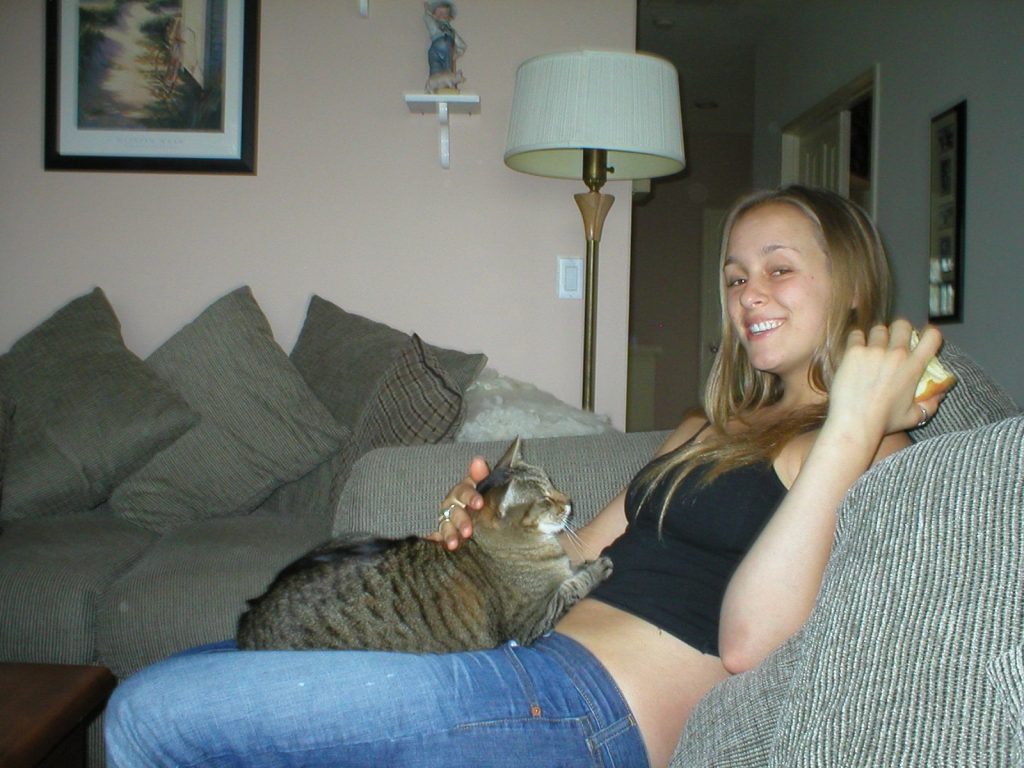Across the United States, the gyms are packed. It’s early January—that great time of abundance when waistlines have expanded with holiday cheer. And as divided as we are in 2020, the majority of Americans share one New Year’s resolution: lose weight and get into shape.

When I was a teenager, I used to flip through Woman’s World, Prevention, and other garbage magazines at supermarket check-stands in search of tips to slim down. Those rags traffic in making women feel terrible about their bodies. I was a healthy size 9, but there was nothing I wanted more in the world than to be a petite size 0 or 3 like some of the other girls at Laguna Beach High School—a physiological impossibility for my frame.
I used to stare at the young women with lithe limbs and flowing clothing, especially when they seemed not to care what they ate. What is their goddamn secret? I played sports; I ate healthy; and I obsessed over my body, but I simply couldn’t lose any weight.

By the time I got to college, my size 9 was thrown into relief by Berkeley’s demographics—a far cry from Laguna’s supermodel standards—and I stopped caring quite so much. But echoes of that pining to be more slender endured. I even wrote my sociology honors thesis on the disordered eating behaviors of young American women.
There is an entire range of methods to control one’s food intake apart from severe restriction (anorexia) and purging (bulimia). There are emotional and behavioral manipulations and nearly all of the 30 girls I spoke to had her unique techniques to placate her carnal obsession.
Some women put bright-colored stickers on “off-limit” foods in their fridges and cabinets; one wore a rubber band around her wrist to snap it in punishment if she reached for the wrong thing to eat; others chewed up massive quantities of junk food and spit it into a vessel like wine-tasting—the satisfaction of taste without the threat of digestion.
Young women in particular labor under a yoke of bodily shame and anxiety. What I realize now in my mid-30s is that what prevented me from achieving my ideal body wasn’t really grounded in what I ate or how I exercised. It was more psychological—my constant fixation on the issue was my biggest problem. Counterintuitively, the more I focused on it, the more difficult it became to get thinner. Sure, good habits are a foundation, but disabusing myself of the obsession was even more important.
These days, people sometimes ask me now how I stay in shape. I’m a size 4 or 6 and I no longer watch what I eat. I’ve developed habits that mitigated my old preoccupation with size—and most have nothing to do with diet or exercise.
Since thinking about my weight consumed so much of my youth and it’s a popular New Year’s resolution, I wanted to share what I’ve learned. Keep in mind that I’m 35, have no kids, and work from home. I also happen to love vegetables and proteins more than pasta and dairy. I realize that not everyone has the same freedom or flexibility in their schedules as I do. The underlying principles, however, can be adapted to scheduling constraints with some effort and planning:
Find a job that doesn’t make you count the hours until lunch. Too many employers in the U.S. tell people when they can eat. School is also like this. You have to abide by your teacher’s or boss’s schedule, whether or not your body craves fuel. This makes us associate food with a break from a grueling activity. It also makes us eat at times we might not be hungry and forgo food when we need it. I believe that this rigidity and the subsequent association of food with a reward is partially responsible for the obesity epidemic in this country. Now that I work from home, I eat when I’m hungry—not when someone tells me I can.
Get as much sleep as you need. In school and at all of my jobs in San Francisco, I was sleep-deprived. The benefits of getting enough sleep are well-documented. As WebMD puts it, “Skimping on sleep sets your brain up to make bad decisions.” Not getting enough sleep also affects our metabolism and elevates our cortisol—a stress hormone that makes our bodies hang onto more fat.
Develop your hobbies. Another difference between now and when I was in school is that I’ve had sufficient time to figure out how I enjoy spending time. When I was younger, I never understood how people could “forget to eat” because at that time, thinking of my weight and food was unrelenting. I also hadn’t enjoyed the luxury of figuring out who I am and what I like to do—the activities which now occasionally make me forget to eat. I read, write, paint, travel, hike, and catch up on award-winning films and TV series that I never watched. (I’m in the middle of Mad Men right now and just finished the Sopranos last year.)
Cook most of your own meals, but treat yourself to good restaurants. I didn’t grow up cooking (and my single mom rarely had time), but I started to take pleasure in culinary creativity and the way it shows love to others. I’m lucky my partner also enjoys cooking (so it’s not all on me) and we have friends over for dinner frequently. I’ve also learned a lot from dining at well-reviewed restaurants. I treat going out as a learning experience and try to recreate my favorite dishes at home. For example, my favorite cuisine is Thai. I took classes in Bangkok and I now grow my own chili peppers to make prik nam pla, the fish sauce and chili condiment you’ve probably seen. From eating at so many different Thai places, I’ve improved upon my old recipe, adding lime juice, fresh-grated galangal (Thai ginger), and garlic. Also, as much as I like to cook, I don’t like following recipes. I cook by taste, which for me is more fun and creative.
If you dislike the gym, find a different activity. I’ve always hated gyms and I wonder what our calorically-challenged ancestors would think of them. You can’t imagine a 17th-century farmer—much less a cave dweller—running a track or lifting weights to try and maintain their figure. It turns out that a lot of people don’t like the gym. They go because it’s the most time-efficient way to burn some calories. Once my schedule became more flexible, I started taking the same 7-mile hike up Spencer Butte—the highest point in Eugene—a few times per week. I ride my bike to the trailhead and listen to podcasts while walking through a lush forest. I look forward to these two-hour outings and now realize that I don’t like to exercise indoors (unless it’s for a sport like volleyball). I also rarely use a car and walk or bike nearly everywhere in town. Rather than treating my body’s work as a chore or task of maintenance, I use it to get where I need to go. Everyone has to find something active that works for them and fits seamlessly into their schedules, even if that exercise is carrying trays of food, delivering packages, or chasing down a toddler.
Beer is not the enemy. People are sometimes surprised that I’m an avid beer-drinker. I’ve visited over 250 breweries across the country and live in Oregon, the state with the highest number of breweries per capita in the country. To me, beer is as variable as food and can play with all of the senses in a way that wine and pure spirits can’t. Each brew is an opportunity for me to try something new, whether its a slightly salty and sour passion fruit gose or a caramel-rich stout on nitro with chocolate notes.
When it comes to eating, go for quality—not quantity. I look forward to my food. Whether I’m cooking or dining out, I’ll eat anything, but I’m picky about quality. I’ve found that mediocre food makes me want to eat more of it to find satisfaction. Instead, seek out the best culinary experiences possible every time you’re hungry. Sure, it costs more sometimes, but can we put a price on future health and present pleasure?
Get to know when you’ve had enough. I don’t calorie-count; restrict portions; or have any specific “diet tricks.” I pay attention to when I’m full and because I’ve sought out the best quality food, I leave most meals satisfied.
Overall, my perennial obsession with food and weight began to melt away when I started living the life I chose—working from home in a creative and rewarding job, living in a city that my partner and I selected after a year-long road trip, engaging in all of the activities I’d finally figured out I enjoyed.
When I was younger, I didn’t have so many choices and food served as an escape from a schedule I disliked at school or work. After many years of hard work and self-reflection—most of it unrelated to diet or body image—food is now a pleasure to me rather than a forbidden reward.
I hope others can create the life that works for them because once this happens, they might find that weight and body goals no longer dominate their New Year’s resolutions.

